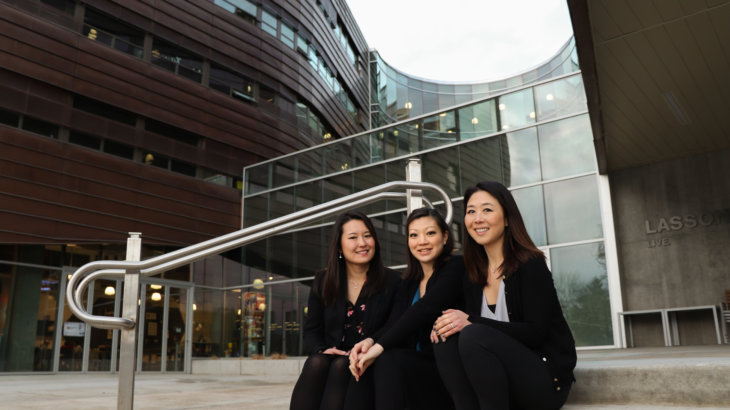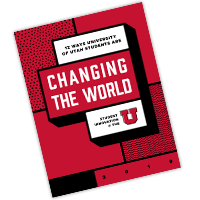The team behind PreOv, a student startup developing fertility solutions for women, is comprised of studious, family-driven, career-oriented women. Joni Aoki, Jeanna Ryan and Young Hong are all studying at or have graduated from the U. Ryan is the president and CEO of PreOv. She has an MS in nutrition, master’s in computer information systems and master’s in physician assistant studies. Aoki is the CFO with tax accounting and FP&A experience, and Hong is the CSO, has a BA in psychology and is currently a student at the U’s pharmacy school.
Most fertility detectors use basal body temperature, a person’s lowest body temperature at rest, which Aoki, Ryan and Hong discovered can be difficult to track and interpret. The three women consulted doctors and other medical professionals, concluding that tracking cervical mucus could be used to predict ovulation with more advanced notice. Eventually, the trio came up with an intravaginal ring with sensors to measure hydration of the mucus. Their goal is to connect this ring to an app through Bluetooth, where this information will be charted and create a “wealth of data” for every user.
They are currently searching for investors to fund the final design and manufacturing of their product so they can move on to FDA testing.
Their entrepreneurial journey started with a flier from Bench to Bedside, a student medical innovation competition provided by the Center for Medical Innovation at the U. From there, the trio met to brainstorm ideas for the competition, at the time thinking it would only be a small side project. They eventually came to a topic they were all passionate about: fertility. “A lot of women and couples have a difficult time getting pregnant. Chances of conceiving decrease with age. We decided to start a family later in our careers, which is why we felt it was a problem a lot of other women may be facing nowadays,” Ryan said.
PreOv won first place and $50,000 at the Bench to Bedside competition in 2018, as well as $5,000 at the U’s Opportunity Quest, provided by the Lassonde Entrepreneur Institute, in early 2019. However, it is more than just encouragement from these competitions and mentors that keep them going; PreOv continues to be the passion of these women due to their proximity with polycystic ovary syndrome, women who were looking for non-hormonal contraceptive aids and their desire to bring attention to women’s health. The prize money was an indicator that the product was marketable, but even without it, they felt that it would have been a shame to not pursue development.
More articles like this in ‘Student Innovation @ the U!’
Find this article and a lot more in the 2019 “Student Innovation @ the U” report. The publication is presented by the Lassonde Entrepreneur Institute to celebrate student innovators, change-makers and entrepreneurs.




